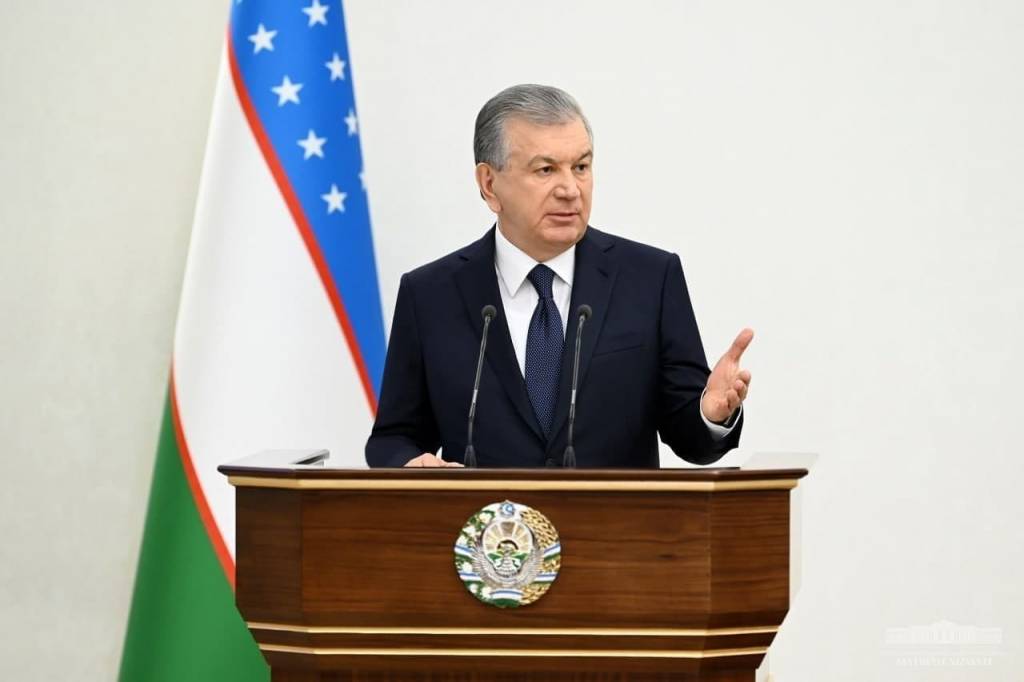
On May 12, President Shavkat Mirziyoyev chaired a meeting on economic growth indicators in the regions and industries for the first quarter, and priorities for the current year.
In the difficult conditions of the pandemic, the economic stability, production indicators and jobs were maintained thanks to the comprehensive support by the state for the economy and entrepreneurs.
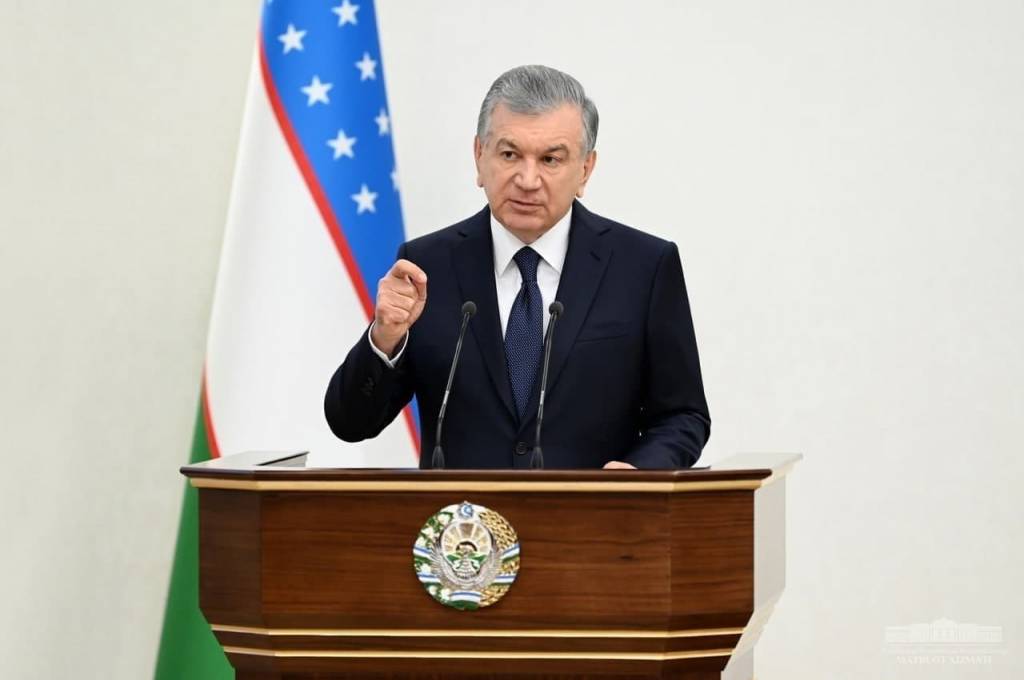
In the first quarter, the country’s gross domestic product grew by 3 percent, industrial production by 3.8 percent, agriculture by 3.1 percent. State budget revenues exceeded the forecast by almost 2 trillion UZS. Exports in January-April amounted to $3.2 billion.
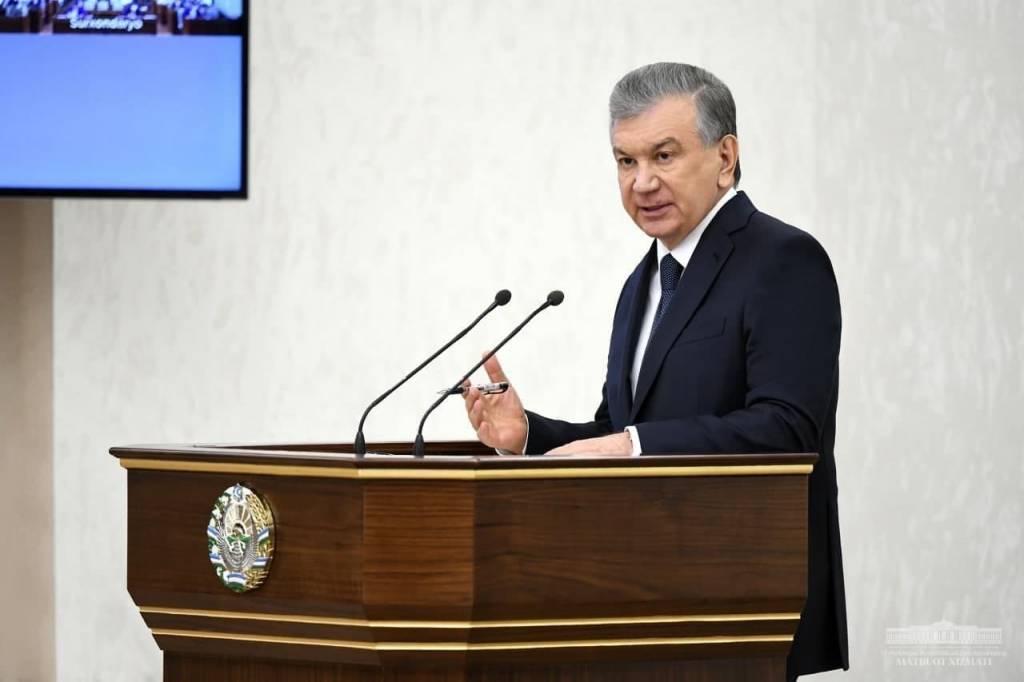
“Indeed, the numbers are good. We adopted laws and resolutions, created opportunities, and provided funds to achieve them. If all industry leaders were successful in their activities, these numbers would be twice as high. The vertical system of ministries does not work. Industry leaders lack initiative, while deputies lack authority and a sense of responsibility. If we put an end to corruption, if the local system works, the hokims of regions, districts and cities will strengthen their responsibility, the economy will develop by itself”, said Shavkat Mirziyoyev.

Shortcomings in certain industries and regions were noted. In the first quarter, production in Uzavtosanoat JSC decreased by 40 percent, in Uzbekneftegaz by 4.7 percent, and in the leather industry by 10 percent. While demand for drugs and medical devices has risen sharply in recent years, pharmaceutical production has fallen by 22 percent. The volume of production at 74 large enterprises in the regions decreased by 1.1 trillion UZS compared to last year.
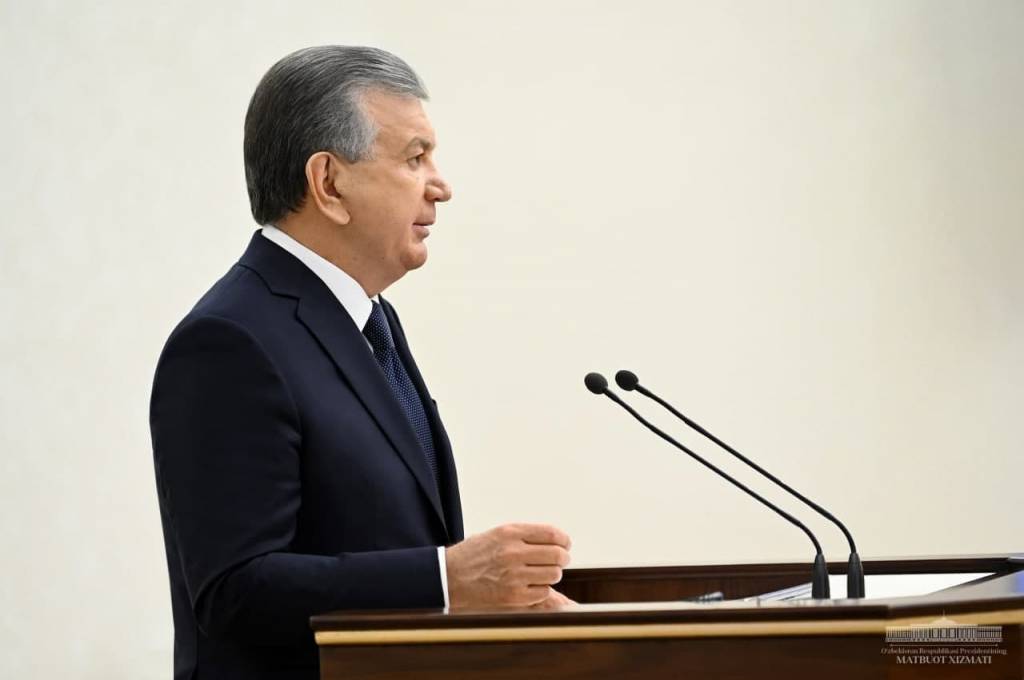
The Head of the state noted that in the first half of the year it is necessary to eliminate such backwardness, to find and use additional reserves.
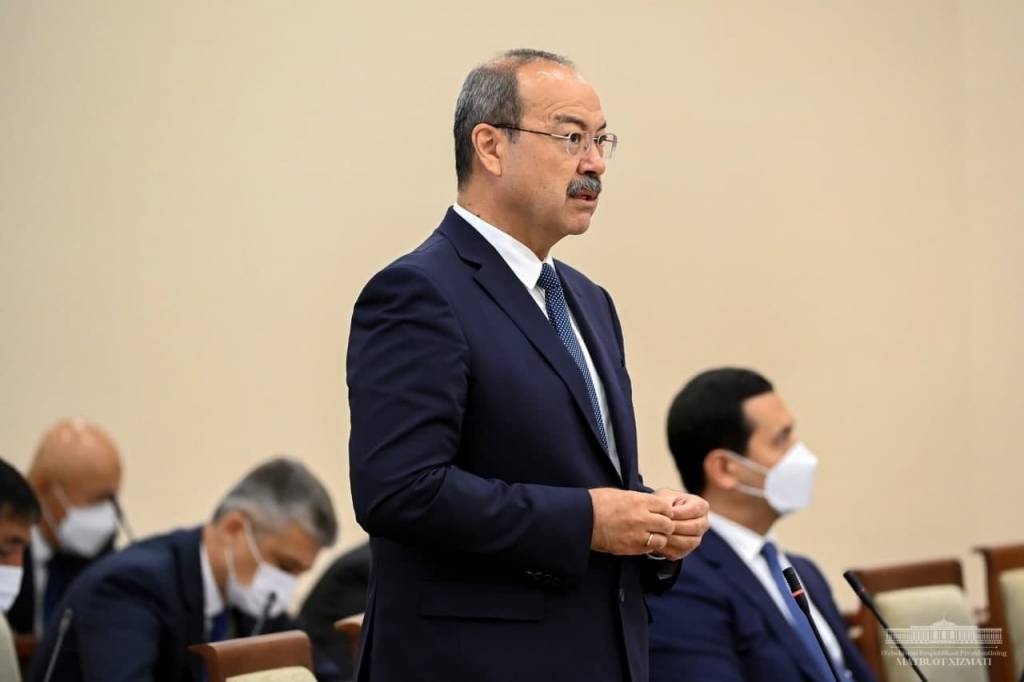
First of all, energy resources are needed for economic growth. To fully meet the needs of industries, businesses and the population, Uzbekneftegaz needs to produce 9 billion cubic meters of natural and 165 thousand tons of liquefied gas in the second quarter, and 15.5 billion kilowatts of electricity in Thermal Power Plants and Uzbekhydroenergo systems. It was noted that there are all opportunities for ensuring high growth rates in such industries as electrical engineering, textiles, leather and footwear production, construction materials and pharmaceuticals.
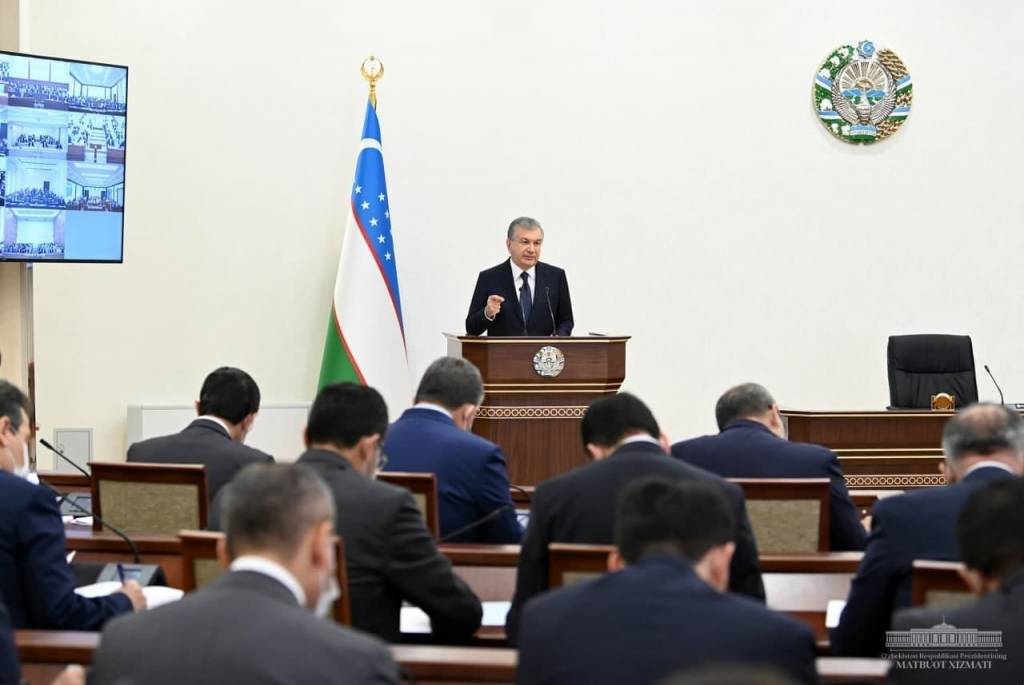
The issue of transformation of state-owned enterprises was also discussed. Instructions were given to accelerate the transformation process in the joint-stock companies Hududgaztaminot, Uzdonmahsulot, Agroservice, Agroleasing.
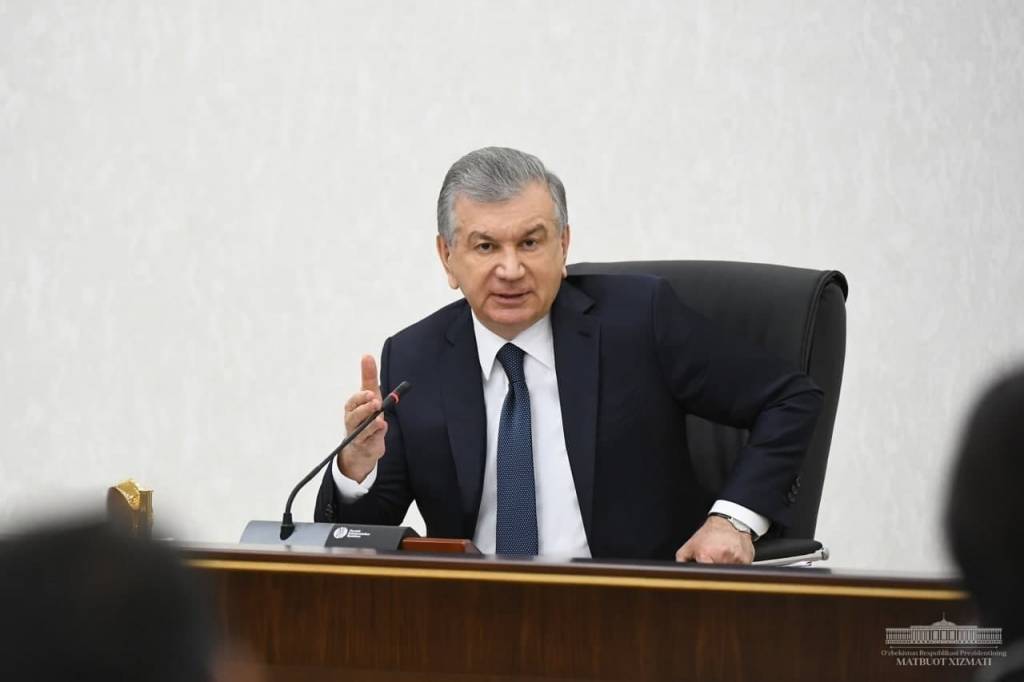
The issues of investment and export were discussed in detail. It was noted that in the second quarter of this year it is necessary to master investments for 75 trillion UZS, due to this, to introduce new production capacities within 43 sectoral and 2.5 thousand regional projects.

For example, in the light industry in Asaka, Gijduvan, Kagan, Karshi, Khatirchi, Kibray districts and the city of Chirchik, it is planned to commission large textile enterprises worth $220 million, providing permanent employment for about 3 thousand people.
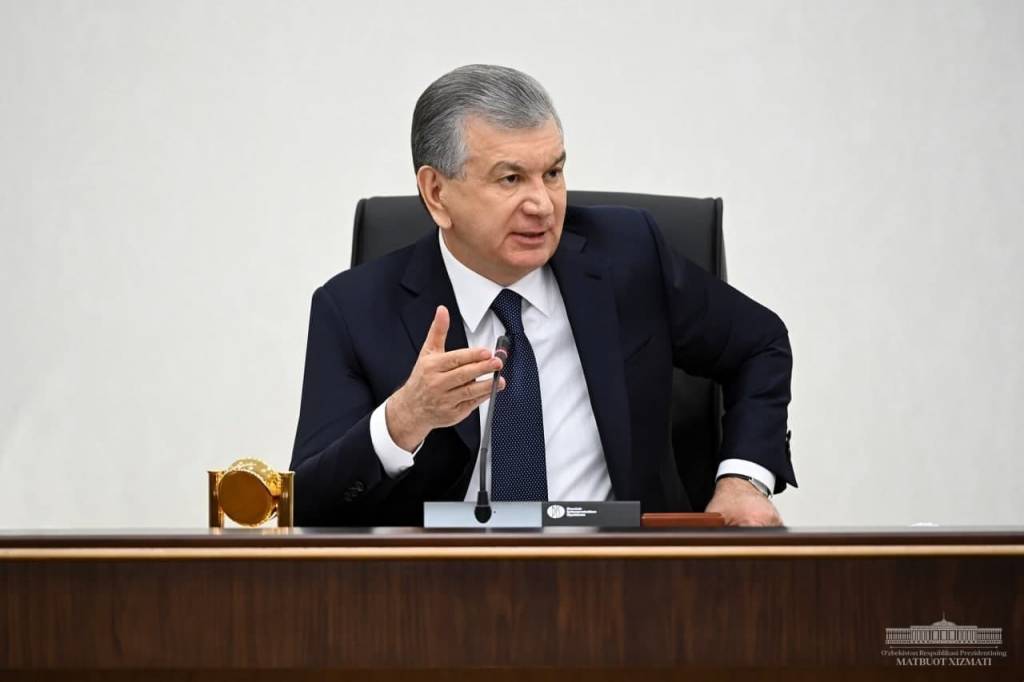
The President instructed the officials to strictly monitor the implementation of each investment project and accelerate the launch of enterprises.
Exports are estimated to reach $5.2 billion in the first half of the year.
The President noted the importance of fully using the GSP+ system, of which Uzbekistan is the beneficiary, and increasing the number of textile enterprises that meet Oeko-Tex standards.

In addition, it is necessary, with the involvement of foreign experts, to develop training programs on the implementation of international standards and train specialists of local enterprises.
Food security is becoming increasingly important. The prices for meat and vegetable oil on the world market are growing steadily throughout the year. In such conditions, it is necessary to increase food production.

For this, it is planned to put into operation 1 thousand livestock and 277 poultry enterprises, grow vegetables, potatoes, rice, melons and fodder crops on more than 1 million hectares of the main areas and lands freed from other crops.
President instructed officials to take measures to procure 246 thousand tons of oilseeds and 86 thousand tons of oil to meet the needs of the population in fat and oil products this year.
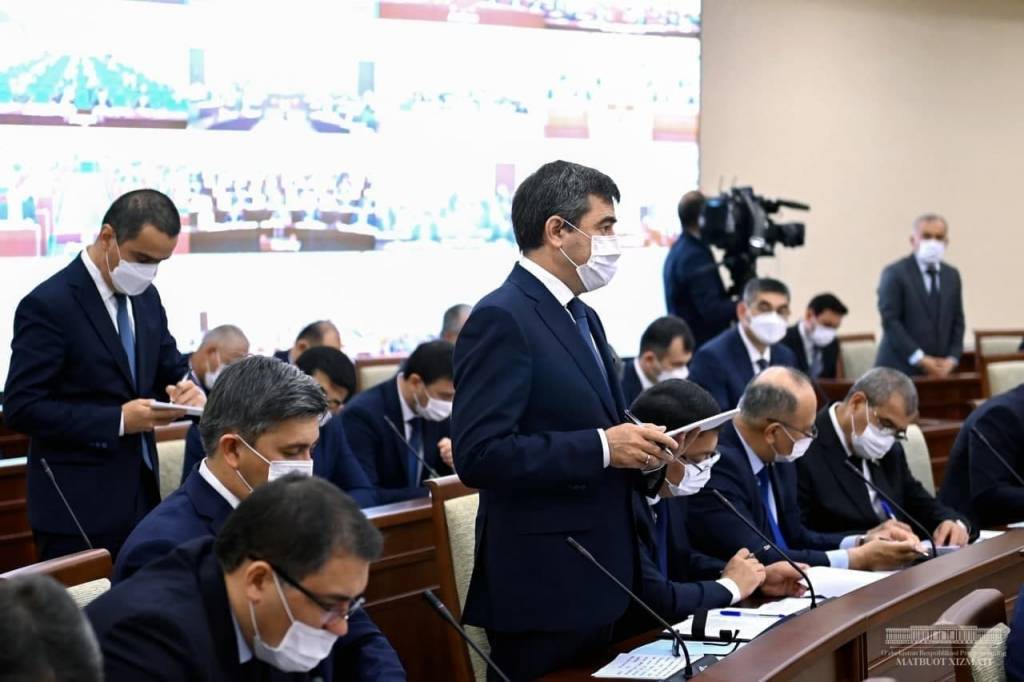
The economic complex was tasked with assisting business entities that are not working at full capacity. The need was noted for allocating 1.6 trillion UZS in May-June for family entrepreneurship programs, through this to create sources of income for at least 30 thousand people. The possibility of creating 13 thousand new jobs within the framework of regional programs was noted, 5 thousand – through the sale of free land plots, another 10 thousand – through employment funds, support for women and youth.
Instructions were given to enhance trade in polyethylene, polypropylene, polyvinyl chloride, soda ash and other raw materials on the exchange, to provide additional support to the furniture industry. This will be an important factor in the sustainable development of local businesses.
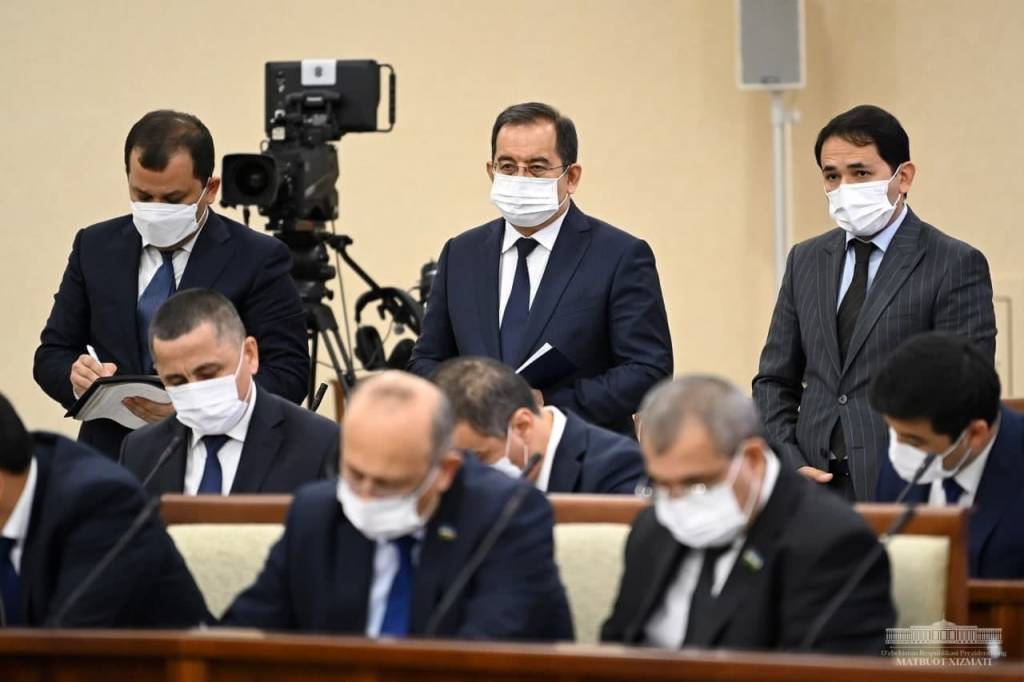
The President criticized the work on ensuring the efficiency and repayment of the allocated credit resources.
“The heads of industries, regions or sectors do not systematically deal with the issues of connecting enterprises created with loans to the infrastructure, do not help them in finding a sales market”, the Head of the state said.
Responsible persons were instructed to identify troubled enterprises, create conditions for them to get out of the shadow economy, provide loans with a targeted and specific purpose.

Taking into account the opinions and objections of entrepreneurs, the State Tax Committee was tasked with further improving the systems for registering value-added taxpayers and calculating taxes.
Deputy prime ministers, ministers and hokims reported on measures for the development of industries and regions in the first half of the year.
UzA








